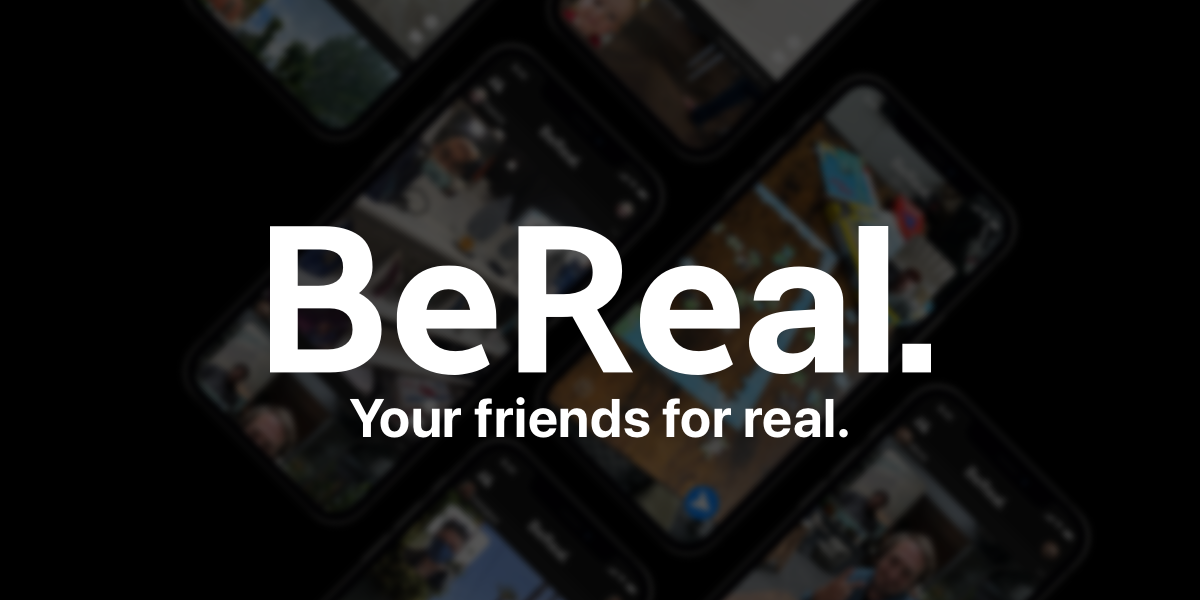What is new? A social media app with no filters, BeReal, the trending new social media app, gives users a brief window, once a day, to post candid, unedited photos.
Downloads of the app (on Google Play and App store) have skyrocketed in recent months, giving the world’s Gen Z generation a new way to connect through the work or school day.
BeReal markets itself as a more authentic social media platform and is rapidly gaining popularity on college campuses globally, by getting users not to over-think what they post.
At a varying time, each day, BeReal users receive a single notification en masse prompting them to take two photos — the app snaps photos from the phone’s front and back cameras simultaneously, showing where you are and what you’re doing at the same time. Everyone is given two minutes to take the photographs, which are then shared with their followers on the app. People who miss the daily notification can post late, but such images are noticeably marked for being delayed. To see everyone else’s contributions, a user must first upload their own daily shots, forcing them to participate daily instead of lurking.
There are no filters or “likes” but users can comment and upload reaction pictures and emojis to their friends’ posts. The underlying idea is that by giving users a short deadline, there’s little time for anyone to snap the perfect image. People can pose or quickly fix their hair, but more often than not users are compelled to share whatever is going on in their lives at that given moment; they don’t have time to make fancy adjustments. Also, the app doesn’t include any photo editing tools.
BeReal has gained popularity as an antidote to the pressure young users now face to be creative and look perfect online.
Over the past two years, there’s been an explosion in short-form video products like TikTok, Instagram Reels and Snapchat Spotlight that place a premium on users showing off their talents to friends and strangers alike.
The Paris-based company behind BeReal was cofounded by Kévin Perreau and Alexis Barreyat. Barreyat was inspired to create BeReal, “after being tired and annoyed with all the bulls—- on social media” he said in a LinkedIn post.
The app, launched in December 2019which went live in 2020, first gained popularity in France, where it was developed. Over the past several months, it has taken off at American universities. Between January 2021 and February 2022, BeReal gained close to 4-million downloads globally on the App Store and Google Play, according to data from Sensor Tower. Nearly 30% of those came in February 2022. BeReal ranked 4th in downloads in the U.S., the U.K. and France for Q1 2022, after Instagram, Snapchat and Pinterest.
BeReal is tapping into a wider internet trend of scarcity and authenticity online. Its approach seems designed to encourage people to feel good about who they are. Because the app only requires one post per day, it doesn’t overwhelm or overburden users.
If BeReal’s popularity keeps growing, there’s a good chance bigger social media companies might eventually try to replicate its unique characteristics, according to experts. Years after Snapchat turned down a multibillion-dollar acquisition offer from Facebook, Mark Zuckerberg’s company rolled out a feature called Stories, which mimicked a similar offering from the rival company. In 2020, Instagram launched the video-feature Reels, a near copycat of TikTok.
For now, BeReal is focusing on the same habitat that Facebook first conquered long ago: college life. BeReal’s Ambassador Programme pays students to promote the app on their campuses via sponsored events and parties.
BeReal is only the latest in a long line of products promising authenticity to the young. But can it live up to expectations or will it become yet another passing social media fad?
End






